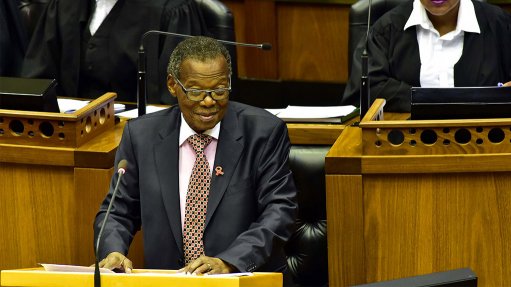
IFP Leader Mangosuthu Buthelezi
As the traditional Prime Minister to the Zulu Monarch and Nation, and as a lifelong servant of the people of South Africa, I was anxious to hear the President’s response today to the State of the Nation Debate, for I had asked the President critical questions on the issues of land and traditional leadership.
I know that the millions of people living in traditional communities, our Amakhosi, as well as His Majesty the King were anxious to hear the President’s response. It is essential to the stability of our nation that we know the President’s intentions around State dispossession of traditional land, which is held under the Ingonyama Trust.
During the debate, I explained that the KwaZulu Legislative Assembly had passed the Ingonyama Trust Act to protect the few remaining pieces of land left to the Zulu Kingdom after colonial conquest and racial dispossessions. The Act ensured that land in traditional areas could continue to be administered according to indigenous and customary law.
The Ingonyama Trust Act was amended in 1997 to the full satisfaction of the ruling Party, which declared that the amended Act would make it possible for them to move ahead with the programme of development.
Now, however, the ruling Party has embarked on a campaign to scrap the Ingonyama Trust Act, in order to take the land away from our King, away from the custodianship of Amakhosi, and away from traditional communities, and to place it in the hands of the State.
When the ANC first spoke about expropriation without compensation, Amakhosi never expected that the first land to be taken would be the very land that we placed in the hands of the people. I therefore asked the President whether this dispossession of Blacks by Blacks would have met with approval from Dr Pixely ka Isaka Seme or from Inkosi Albert Luthuli.
I also asked whether the ruling Party sincerely believes that bureaucrats in plush offices can administer traditional land better than those who have been the custodians of our people’s lives, dignity and wellbeing since time immemorial.
Unfortunately, the President did not answer these questions directly. More unfortunate still is that his indirect manner of responding has left far too much open to interpretation.
In many respects, the President’s response to the State of the Nation Debate was a breath of fresh air. But I was deeply disappointed by the short shrift he gave to the issue of the Ingonyama Trust.
Avoiding my direct questions, he simply said that in dealing with the Ingonyama Trust issue they would “do what is in the best interests of our people”.
According to the President, it should not be thought of as land being taken away from our people, but as an opportunity for creating security of tenure.
Ironically, this is the same way we were spoken to by the previous regime, being told not to see things the way we see them, but to see things the way we were told to see them.
The issue of security of tenure is already being addressed by Amakhosi, under the leadership of the King. Why does the ruling Party think it can do things better, or that it knows better? It is difficult not to feel insulted.
I have no desire to place myself on a collision course with the President. But history has bestowed on me the duty to speak up when my people feel threatened. This plan to scrap the Ingonyama Trust Act has created a sense of imminent threat. It would be irresponsible of me to ignore it, for the sake of genial relations.
I am in fact not concerned that the President will consider my continued pursuit of answers to be hostility. He has told us today that when an issue is raised, it should not be swept under the carpet, but should be debated. So, in the spirit of keeping the debate alive until resolution is found, I intend to keep asking the President for direct answers.
I respect his capacity to engage the message without resenting the messenger.
Issued by IFP